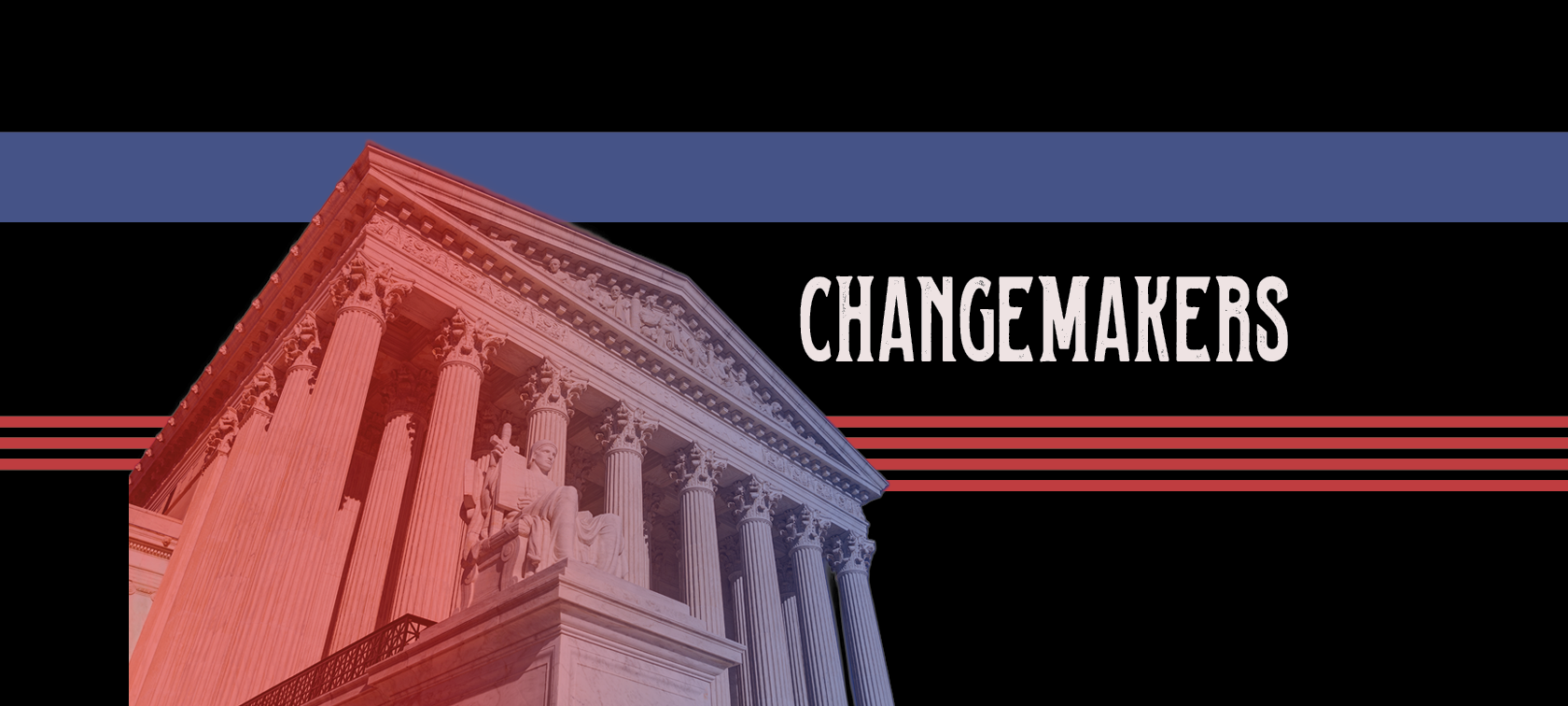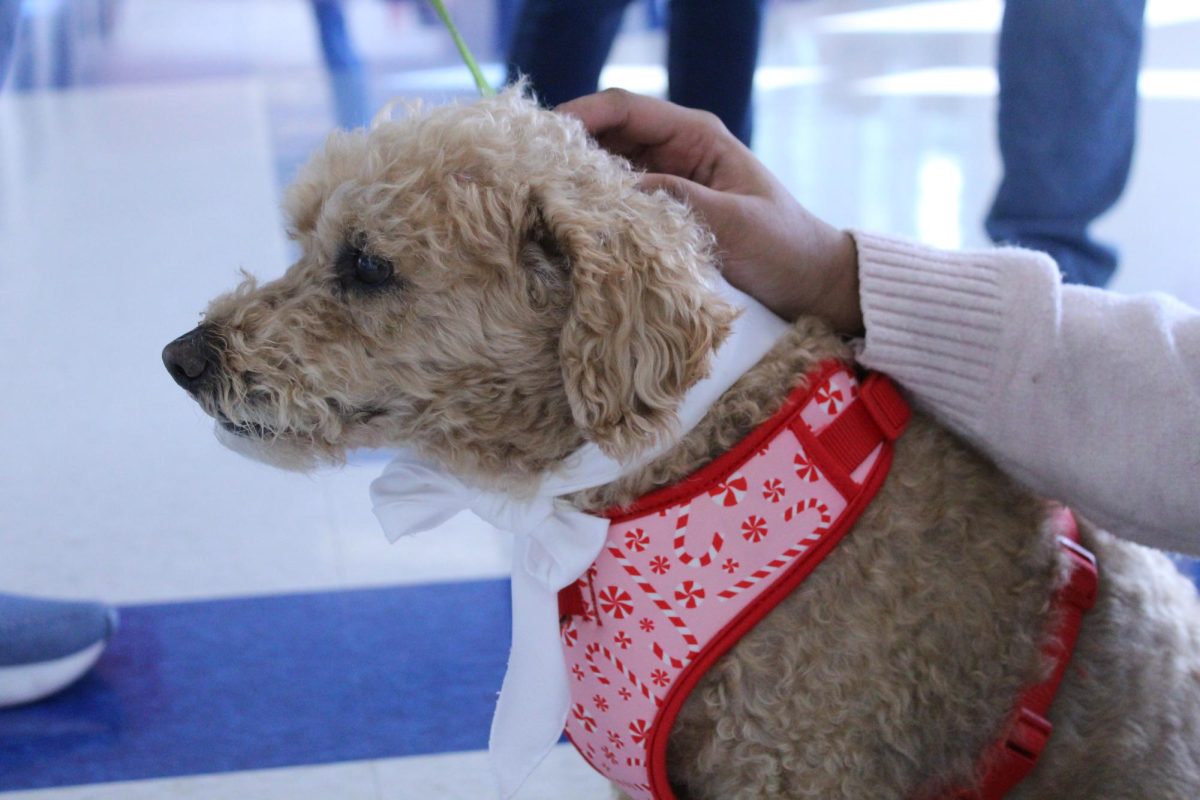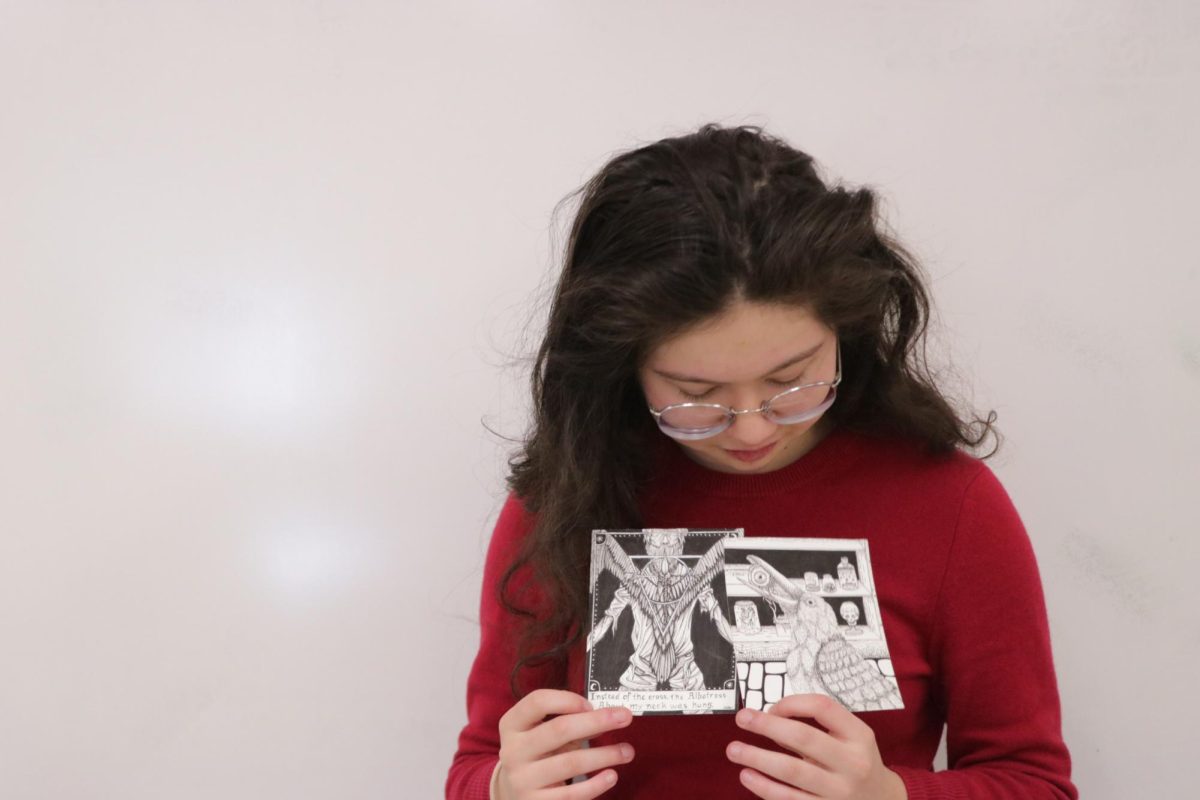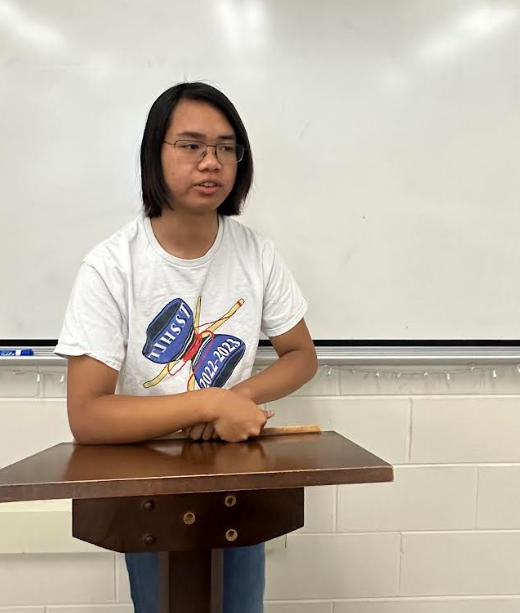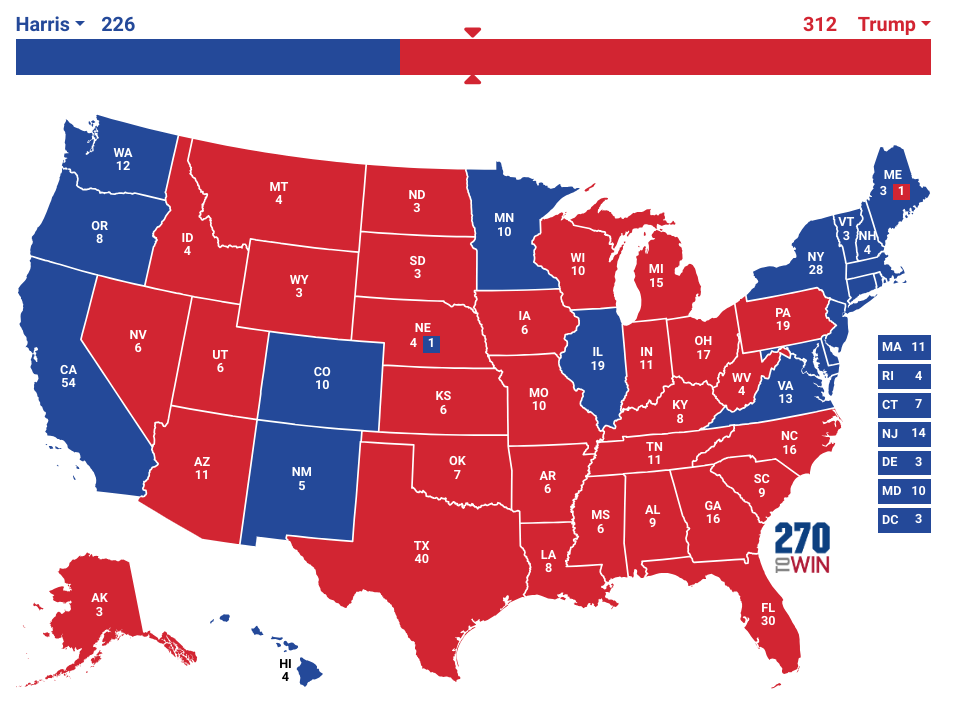Phone calls ring out, fingers dance across keyboards, and the sounds of protests echo from outside the school’s walls.
As conversations and debates fire up following the results of the November election, the energy of political engagement is lively within the halls of Jefferson. From championing equal rights and awareness on gun violence to diving deep into research on electoral systems, students aren’t just observing the political landscape– they are actively shaping it, showing how young voices are important in the pursuit for meaningful change.
“It’s very important for people to be involved because politics has become our entire world,” Nkhoma said. “We live in a system [where] it’s impossible to stay quiet about the different issues that are going on, and many of these issues are directly impacting us. If young people aren’t working to advocate for ourselves, these politicians are not going to be serving us.”
Nkhoma encourages political involvement, regardless of the scale or the result for all younger people.
“Change does not require age,” Nkhoma said. “It just requires action.”
Early Inspirations
For many young students interested in politics, the seeds of political involvement are sown early among family and friends. For junior Gabby Licayan, that journey began in elementary school.
“My dad likes to watch the news, so at first I got interested [in politics] through watching the news alongside him,” Licayan said. “Him reinforcing the fact that politics is important made me want to continue it throughout my entire life.”
After watching the news regularly with her father throughout her childhood, Licayan participated in a mock voting day for the 2020 Trump vs. Hillary election at her elementary school.
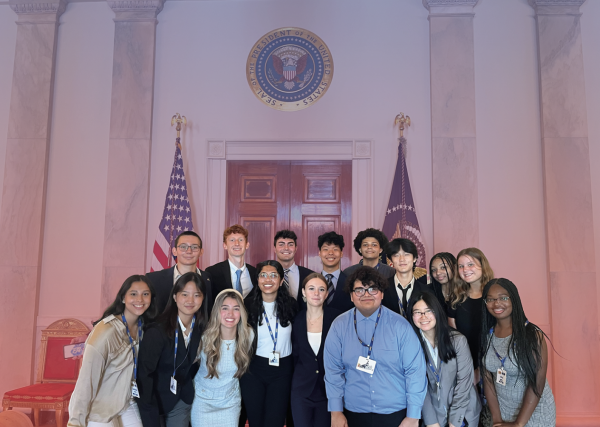
“I remember that I was heavily involved with making sure people voted, for some reason. I don’t know why, but that really sparked my interest in how legislation works and how people can run for political campaigns, [but may not be] qualified for the role,” Licayan said. “I was interested in [how I can] make a difference when other people aren’t really showing any impact.”
Licayan’s interest in politics are also rooted in her cultural background, where political challenges such as corruption and lack of accountability within the Philippines, where her family is from, have led to disillusionment among its citizens. Her extended family members are also politicians, holding office in the House of Representatives and Senate.
“Them going into politics has made me believe in myself definitely, because if my family members can do it, why can’t I?” Liycan said. “It has made me prove to myself how worthy I am to pursue a public position for my career.”
Similarly, senior Nil Dwyer’s impactful experiences with politics came from his mother, who advocates for insurance for individuals with Crohn’s disease.
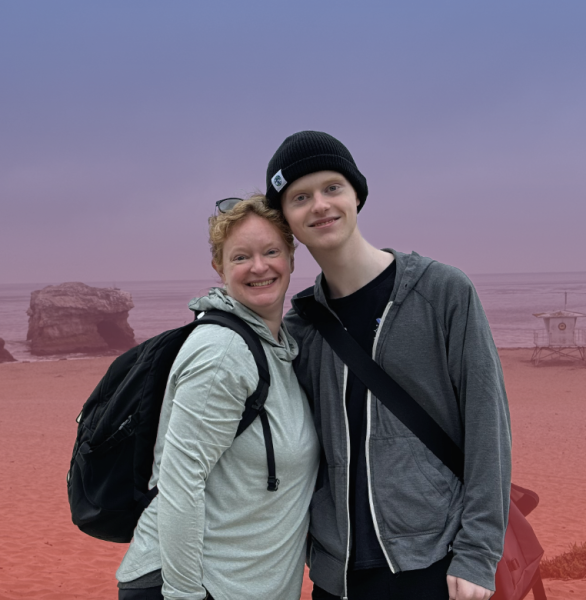
“My mom has Crohn’s disease, and she goes out and advocates for it,” Dwyer said. “She works to advocate for policy changes that will affect anyone immunocompromised, and specifically anyone using insurance. She goes to Capitol Hill and talks to anyone who has legislative stake and educates them [on] the issues.”
Through his mother’s experience, Dwyer realized that the impact of human’s voices are larger than one may initially realize.
“A lot of the political decisions that most politicians make are based off not them nor their staffers knowledge, but based off people who know what they’re talking about, based off doctors, [based off] professionals in the field,” Dwyer said. “My mom acts as [a] staff professional in the field, and shows the congressional staffers why it’s important that these bills get passed or any change happens.”
Dwyer’s mother’s dedication to advocacy has not only shaped his perspective on health care policy, but also the level of impact that he can make himself.
“Having a family member invested in politics has solidified my worldview that I can make a difference,” Dwyer said.
“The only thing that sets apart anyone I know and my mom is the fact that she’s going out and talking to people. Anybody can walk into Capitol Hill and talk to people.”
Junior Moubon Kurukumbi became more involved in politics after someone in her close friend’s life was affected by gun violence.
“I had with a friend of mine who lost someone they love to gun violence,” Kurukumbi said. “It’s very scary to me. It terrifies me how much guns control our society right now. I know it’s the Second Amendment right for everyone to have a gun, but it’s also our right to be protected and to feel safe wherever we go.”
Gun violence is one of many divisive issues that highlight the intense political polarization in today’s society– a fact that has fueled interest in politics for students such as senior Deven Hagen.
“It’s very fascinating that people can’t find any middle ground on issues in certain cases. I feel like there should be more willingness to compromise, willingness to find middle ground, willingness to view your opponent as an actual human being,” Hagen said. “There’s a lot of anger from both sides.”
To tackle the multitude of these issues, Jefferson students are channeling their early inspirations, personal roots and experiences toward a society where people can find common ground together.
“Trying to tone down the rhetoric, calm things down and find compromise [is] something I’m interested in,” Hagen said. “But it’s very hard because we didn’t get into this situation easily. It’s going to take a while to clean up our politics and restore the moral clarity.”
Driving change today
Numerous Jefferson students find their own unique ways of being involved in politics, from starting organizations to hosting walkouts to joining clubs. For senior Mlumbeni Nkhoma, political participation began with the Young Feminist Party and a proposed amendment to the Constitution.
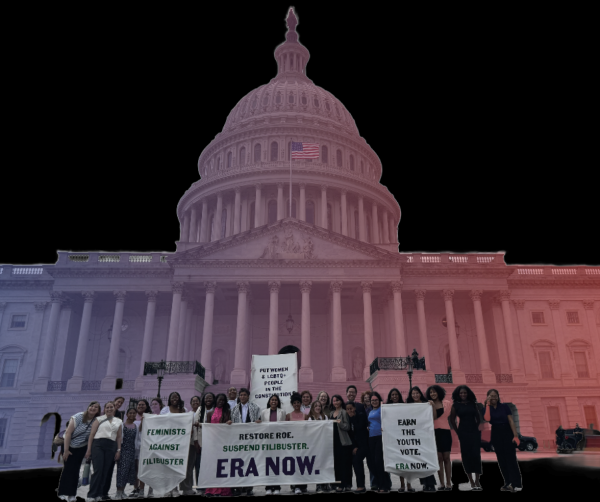
“I was fascinated with the Equal Rights Amendment, which is a proposed 28th amendment to the Constitution, which would prohibit sex discrimination in this country,” Nkhoma said. “I hadn’t realized that women and LGBTQ+ members were not written in our Constitution.”
As the executive chapter lead for the Jefferson Young Feminist Party, Nkhoma works with other chapters to organize events and outreach.
“My week looks like organizing different phone banks and actions with local chapters in Virginia to owning for different states that have abortion initiatives on their ballot,” Nkhoma said. “In particular, I’m working with other local Virginia chapters to have a phone banking event to advocate for Maryland’s Question One, which is their right to reproductive freedom amendments that will hopefully be signed onto their state constitution.”
Junior Moubon Kurukumbi is following a path similar to Mlumbeni, engaging in politics through her role in the student body. Kurukumbi started the Done With Guns organization to raise awareness of gun violence.

“Done with Guns started as a response to what I was seeing in the news and what was happening in my own community,” Kurukumbi said. “People at [Jefferson] have done organizations in the past, and I thought it would be a good way to kind of spread the message and have a central way of spreading that message.”
Following a walkout on March 18, 2024, which was vital in spreading awareness of the organization’s existence, Done With Guns now has a team of organizers focused on local community events.
“We had a library event where we did a lot of arts and crafts and basically focused on helping kids understand that they could talk to their parents about gun violence,” Kurukumbi said. “They also talked to voters about what they should vote for this upcoming Nov., depending on what they view about gun violence.”
Senior Deven Hagen is exploring a different facet of political engagement, focusing on electoral systems and representation through research. Last summer, Hagen studied multi-member congressional districts, which allow for voters to select multiple people on the same ballot within their geographic region, allowing for a more proportional representation in comparison to the U.S.’s current electoral college system.
“I did some research with a professor [last] summer into gerrymandering [and] multi-member congressional districts, which are districts where instead of electing one person from a particular geographic region, you would elect multiple on the same ballot,” Hagen said. “I found that it was better for accurate proportional representation.”
Captivated by the research, Hagen pursued another summer research internship with Professor Ismar Volić, the chair of mathematics at Wellesley College.
“I knew I wanted to do summer research, particularly something quantitative, but within the political sphere,” Hagen said. “At first we were looking into the [European Union] apportionment. Each country has a certain number of representatives to the EU, and it’s not determined by population. They divided the number of representatives in different countries.”
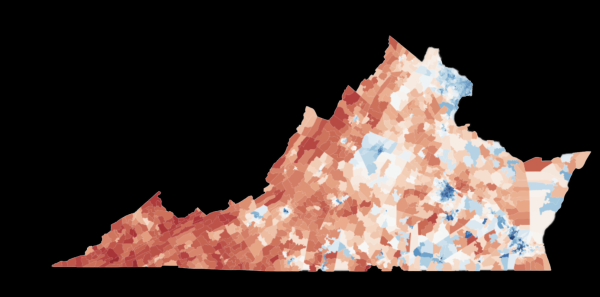
Hagen is currently continuing his previous findings in his senior research lab.
“I want to provide an exhaustive look at all the different possible maps you could create, and then see which one [is] the best,” Hagen said. “There’s existing software out there to create congressional districts, but most of them are focused on creating single-member districts, not multi-member districts.”
Future Aspirations
As these students begin to make their marks within organizations, advocacy and research, some are also contemplating their roles in shaping the future.
“I’m looking into studying government, political science, that kind of thing in college,” Hagen said. “I’m interested in going into politics when I’m older [and] when I have [more security and stability]. But it is a long term goal of mine to go into politics, maybe not necessarily in the near future, but in the long term.”
Similarly, Licayan is looking into potential career paths within politics.
“I might want to run for Congresswoman, or just something in the political aspect,” Licayan said. “I definitely want to run in the future.”
Licayan first considered this as a career after a comment from her father after he dropped her off at a Model United Nations (MUN) event in Reston Town Center during her freshman year.
“My dad was there as a volunteer, and after the meeting he was like, ‘You’re a politician,’” Licayan said. “‘You talk with everyone you know, you’re always jumping from group to group. You should maybe look into politics.’ I’ve been interested in politics, but not in pursuing it, but [after] my dad said that, I felt like maybe I could.”
Inspired by her father’s encouragement, Licayan is embracing the idea of a potential political career, recognizing the powerful role that politicians play in shaping society.
“Politicians have a really big impact in creating policies and making change for the nation,” Licayan said. “Being a politician means that I can make a change for my future children, for those who are discriminated against or don’t have the opportunities that we do. I want to [be] the person that can be the voice for those [who] can’t speak up.”
From the November 2024 Political Issue of tjTODAY

